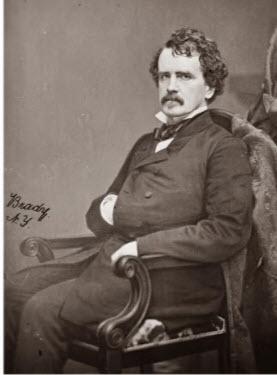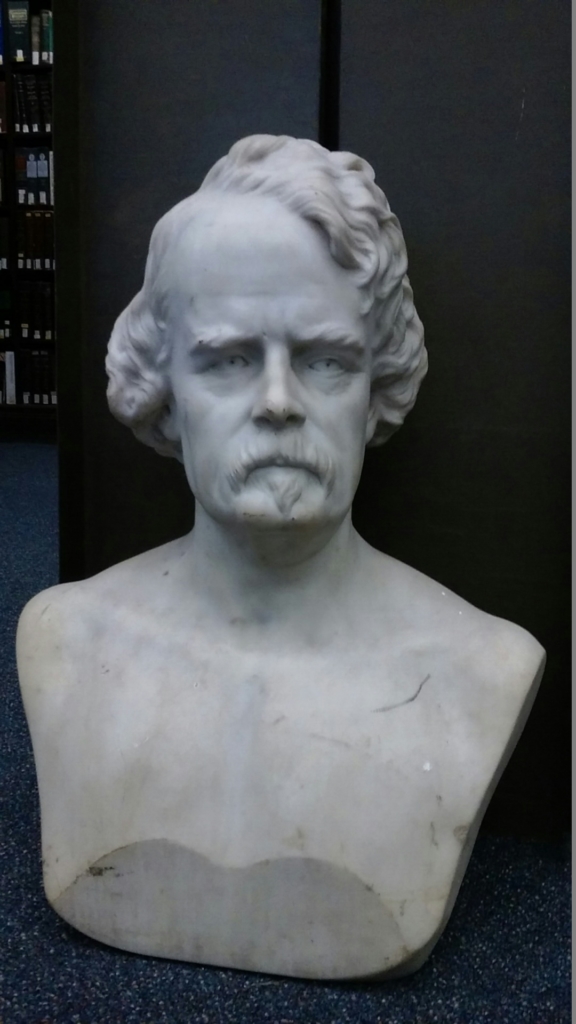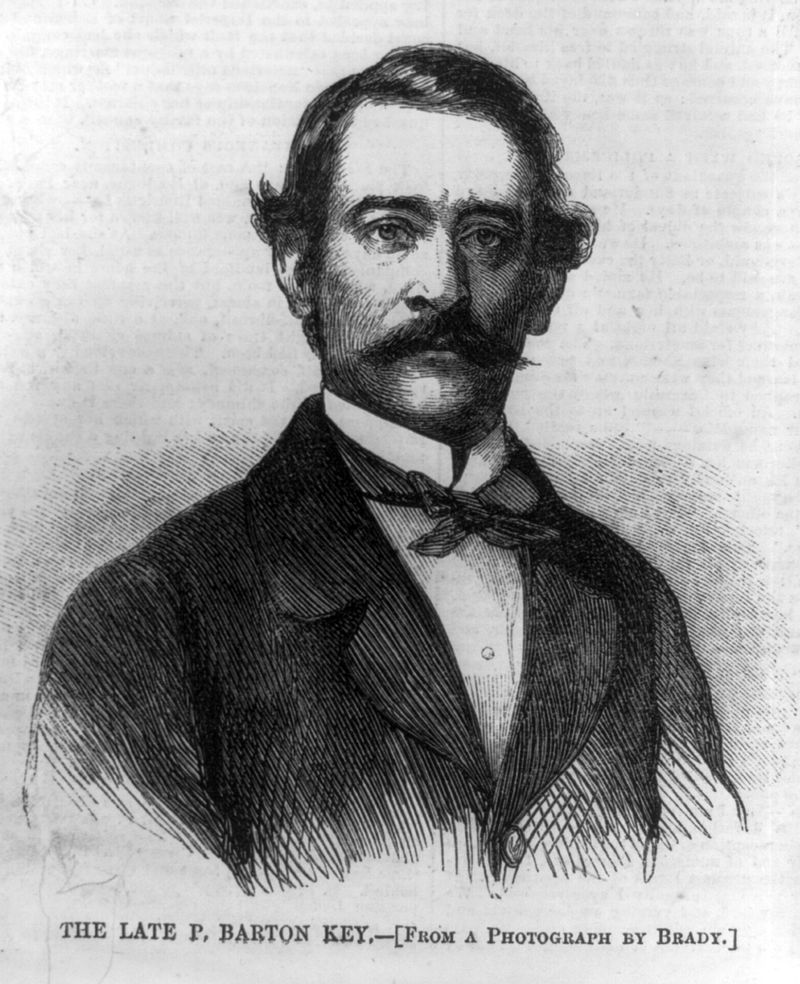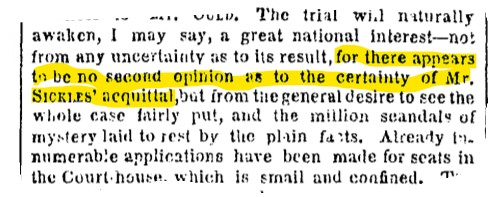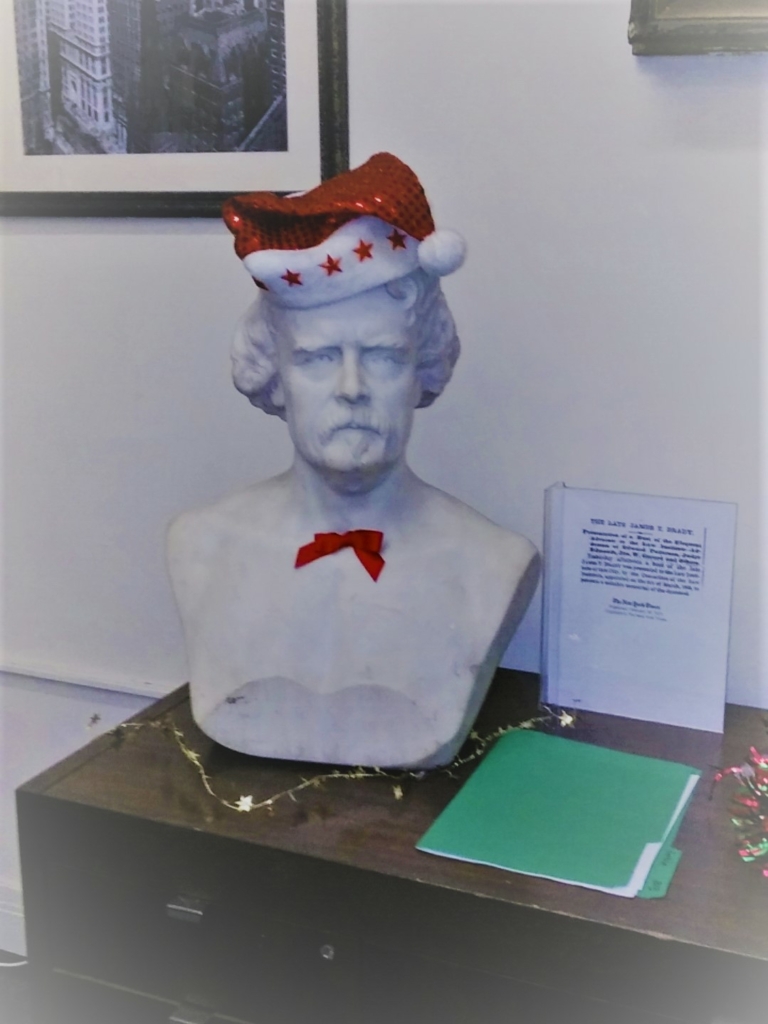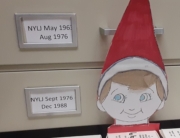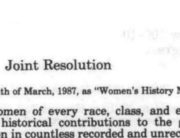When Americans think of famous defense attorneys, they often think of those with celebrity defendants . The more historically minded think of Clarence Darrow.
And is there a better known fictional defense attorney than T.V.’s Perry Mason?
Former NYLI President James T. Brady had celebrity clients, set a historical legal precedent, and was one of the most successful criminal defense attorneys of his era.
And he has the added honor of a bust at The New York Law Institute !
Brady, child of Irish immigrants and educated at home, entered the profession as a late teen managing his father’s office. His first case involved insurance fraud with fellow NYLI luminary Charles O’Conor as opposing counsel, and Brady was soon part of Daniel Webster’s legal team in the noted patent case Goodyear v. Day.
But Brady’s lasting fame came as a criminal defense attorney, in one our nation’s earliest celebrity murder trials., and the first one to use the temporary insanity plea.
Daniel Sickles , self-described “Tammany Hall Democrat” , had a political career rife with stories of ballot tampering, theft and brawls. Securing the political plum appointment as minister to London by President Buchanan, Sickles chose to bring his favorite madam Fanny White as his traveling companion rather than his young wife Teresa!
In 1857, the new Congressman Sickles moved to the fashionable part of D.C. And young Teresa soon began an affair with “the handsomest man in all Washington Society”, District Attorney Philip Barton Key.
The son of the author of The Star Spangled Banner and Mrs. Sickles became increasingly obvious in their behaviors. After one D.C. costume ball, Teresa, dressed as Little Red Riding Hood, was seen entering a carriage at 2 am with Key, who was clad as an English huntsman .
Rumors of a love nest and afternoon assignations eventually made their way in the form a poison pen letter to the cuckolded husband . Extracting a signed confession from his wife, Sickles became increasingly enraged….
And the next time Key made the 19th Century style booty call in form of waving a white handkerchief, Sickles violently confronted him shouting “Key, you scoundrel! You have dishonored my house. You must die!”.
Key was shot in the morning hours in Lafayette Square. There were several witnesses present . And Sickles himself soon confessed to the Attorney General of shooting Key at point blank range.
Who would take on such a case?
And what would be the defense??
Sickles hired a team of eight attorneys led by James T. Brady. The prosecution relied on Robert Ould, once Key’s assistant and now the D.C. District Attorney.
Trial by public opinion began immediately as the scandalous mix of adultery, politics and celebrity ensured front page coverage . Quickly termed “The Sickles Tragedy” by the press, public sympathy was steered to the aggrieved husband.
Certainty of acquittal was declared before the trial even began!
Discovery of the affair, Brady argued, caused Sickles to become “the avenger of the invaded household,” driven to madness by a public scandal . While the defense focused on proving adultery, the prosecution argued premeditation with Ould stating that Sickels “had come to that carnival of blood fully prepared.”
Insanity was already a century old established defense; It was Brady’s use of pleading temporary insanity that was precedential.
And while T.V.’s Perry Mason lost at least 3 cases , James T. Brady’s obituary makes note of his losing only one capital offense case during his long career.
Connections to the Sickles case precedent and Clarence Darrow’s defense in the Leopold & Loeb murder trial can be made, as both defenses relied on arguing that the violence committed was a result of forces beyond the accused’s control.
James T. Brady…….Clarence Darrow... T.V.’s Perry Mason…
All known as Criminal Defense attorneys…. but only one has a bust at

